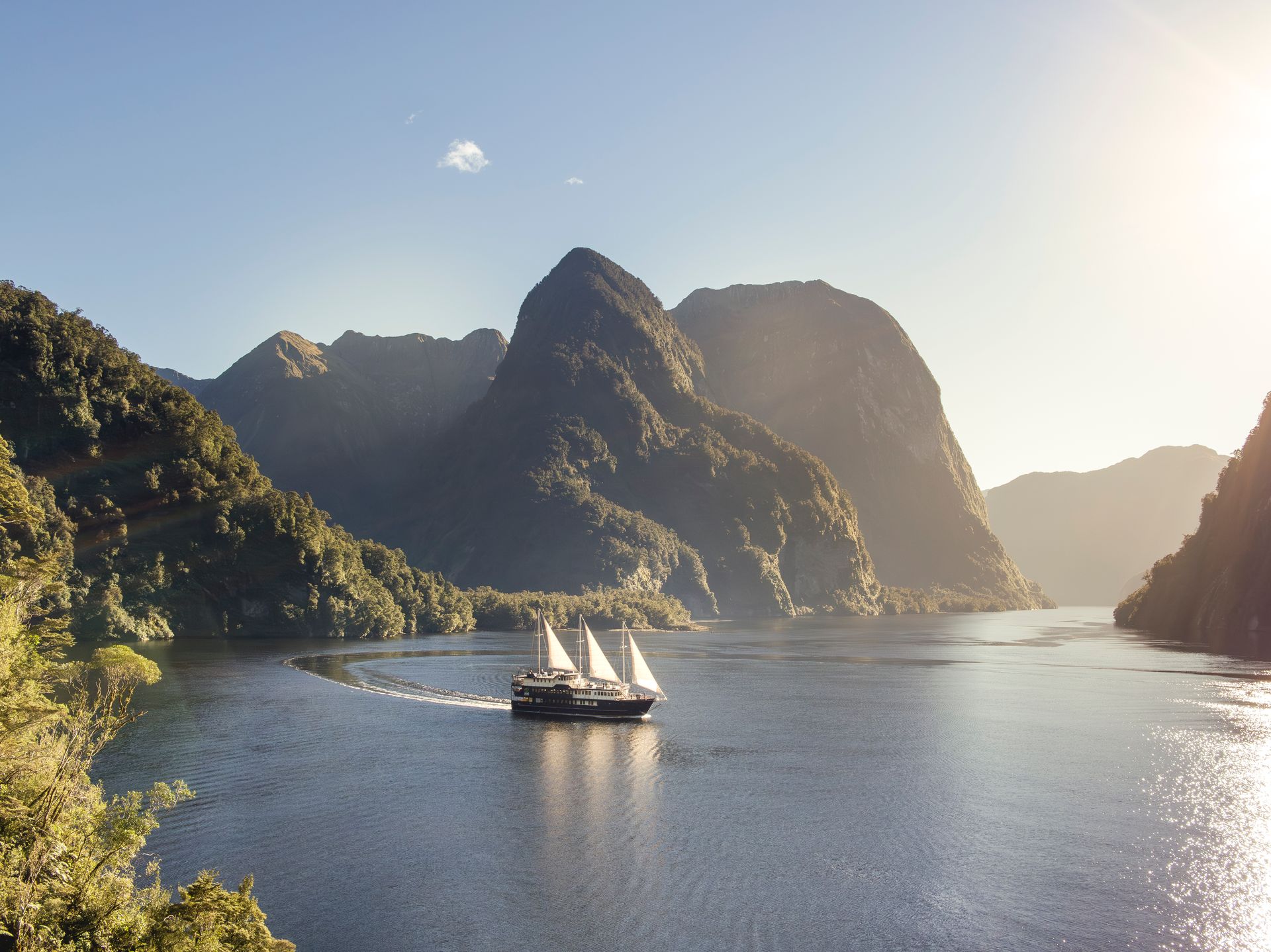
In an age where travel destinations compete fiercely for attention, one nation consistently rises above the noise—not through aggressive marketing campaigns or flashy tourism boards, but through something far more profound: authenticity. New Zealand, known to its indigenous people as Aotearoa, “The Land of the Long White Cloud,” has once again claimed its throne as the world’s premier travel destination, and the reasons extend far beyond its picture-perfect landscapes.
The Quiet Revolution of Conscious Travel
While other destinations have succumbed to overtourism, environmental degradation, or cultural commodification, New Zealand has quietly perfected the art of sustainable adventure. The recent opening of the Hump Ridge Track—the country’s 11th Great Walk—exemplifies this approach. Rather than simply adding another tourist attraction, this 65-kilometer journey represents a thoughtful integration of conservation, Māori heritage, and visitor experience.
This philosophy permeates every aspect of New Zealand’s tourism ecosystem. The expansion of the cycle trail network isn’t just about creating more paths; it’s about weaving stories of early explorers and Māori journeys into modern adventures. The official Māori name for these routes, “Ngā Haerenga” (The Journeys), speaks to this deeper connection between past and present.
Beyond the Instagram Moment
In our hyperconnected world, New Zealand offers something increasingly rare: the opportunity to disconnect meaningfully. The country’s eight certified dark sky sanctuaries represent more than astronomical viewing opportunities—they’re sanctuaries from our illuminated, always-on existence. Whether you’re learning astrophotography at Mt John Observatory or simply lying in a star-gazing hot tub, you’re participating in an ancient human ritual of wonder.
This emphasis on genuine experience over superficial consumption extends throughout the country. The PurePods concept—luxury glass accommodations without Wi-Fi or power outlets—might seem counterintuitive in our digital age, yet they’re booked solid. Visitors crave this deliberate disconnection, this permission to simply exist within New Zealand’s landscapes rather than constantly documenting them.
The Māori Renaissance and Cultural Authenticity
Perhaps nowhere is New Zealand’s commitment to authenticity more evident than in its approach to indigenous culture. Rather than treating Māori traditions as tourist performances, the country has woven them into the fabric of the visitor experience. A karakia (prayer) led by a kayaking guide isn’t cultural theater—it’s a living tradition that transforms a simple paddle into something sacred.
Operations like Footprints Waipoua and Te Puia don’t just showcase Māori culture; they place visitors within mythological and historical contexts that Google searches can’t replicate. This approach creates what anthropologists call “deep travel”—experiences that change not just what you see, but how you see.
The Paradox of Accessibility and Wildness
New Zealand has mastered a delicate balance: making wild places accessible without taming them. The addition of e-bike charging stations along the Great Rides network exemplifies this approach—using technology to invite more people into nature rather than replacing natural experiences with digital ones.
This philosophy extends to the country’s 4,800 marked trails, which range from waterfront strolls to multi-day wilderness odysseys. The democracy of adventure here is remarkable: whether you’re seeking gentle coastal walks or challenging alpine crossings, the country provides infrastructure that supports your ambitions without overwhelming the landscape.
A Living Laboratory of Sustainability
New Zealand’s approach to marine conservation offers lessons for the world. At places like the Poor Knights Islands—rated among the world’s best temperate diving sites—and Akaroa Marine Reserve, visitors can witness thriving ecosystems where conservation and tourism coexist. Swimming with wild dolphins in Kaikoura or watching yellow-eyed penguins on the Otago Peninsula aren’t just tourist activities—they’re encounters with successful conservation stories.
The country’s culinary scene reflects this same ethos. Roadside “honesty stalls” selling local fruit operate on trust, while restaurants like Amisfield showcase wild venison and locally foraged ingredients. Even simple pleasures—gourmet pies from local bakeries, mussel fritters from beach shacks—demonstrate how quality can emerge from respecting place and process.
The Philosophy of Slow Discovery
Perhaps most radically, New Zealand advocates for something nearly extinct in modern travel: taking your time. The advice to immerse yourself in one region rather than rushing between Instagram-worthy locations challenges our culture of consumption tourism. The Ruapehu region, with its bike trails, ancient forests, fly fishing, and luxury lodges, demonstrates how depth of experience can surpass breadth of sightseeing.
This philosophy extends to the ultimate New Zealand experience: the two-month camper-van journey. In an era of quick trips and scheduled tours, the suggestion to take a sabbatical and truly explore feels almost revolutionary. Yet this approach acknowledges a fundamental truth about meaningful travel—it requires time to unfold.
The Deeper Current
What makes New Zealand exceptional isn’t any single attraction or activity—it’s the country’s commitment to experiences that nourish rather than merely entertain. In a world increasingly characterized by artificial experiences and manufactured thrills, New Zealand offers something precious: the opportunity to feel genuinely alive within authentic landscapes and cultures.
The country’s consistent ranking as the world’s best destination reflects more than scenic beauty or adventure opportunities. It represents a hunger for places that remain true to themselves—locations where the landscape, culture, and visitor experience align in authentic harmony.
As our world becomes more homogenized and digitized, New Zealand’s appeal may only grow. It stands as proof that in an age of artificial everything, nothing surpasses the power of authentic experience. In Aotearoa, you don’t just visit a destination—you encounter a way of being in the world that remembers what travel, at its best, can offer: transformation through authentic connection with place, culture, and ultimately, ourselves.
This is why New Zealand continues to capture hearts and imaginations worldwide. In a noisy world, it offers something increasingly rare: the profound quiet of authentic experience. And in that quiet, visitors discover not just a beautiful country, but a reminder of what makes us most human—our capacity for wonder, connection, and deep appreciation of the natural world.

